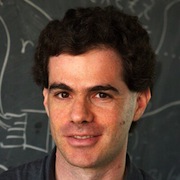Research Areas
Fundamental tools and applications
Quantum mechanics enables fundamental new cryptographic rules previously impossible in classical cryptography. For example, the rules of quantum mechanics dictate that a quantum system cannot be observed without being disrupted. This means that the very nature of quantum mechanics can be used to protect quantum communications.
- Discovering and developing assumptions that would allow for computationally secure quantum-safe primitives
- Quantum algorithms for the computational problems underlying proposed “post-quantum” cryptography
- “Unconditionally” or “information theoretically” secure “classical” tools that remain secure against quantum adversaries
- Fundamentally new cryptographic primitives not possible in a classical paradigm that are enabled by quantum technologies
 Gilles Brassard
Gilles BrassardINTRIQ, Montréal
 Anne Broadbent
Anne BroadbentOttawa
 Andrew Childs
Andrew ChildsQuICS, Maryland
 Claude Crépeau
Claude CrépeauINTRIQ, McGill
 Ian Goldberg
Ian GoldbergCACR, Waterloo
 Daniel Gottesman
Daniel GottesmanPerimeter Institute
 David Jao
David JaoCACR, Waterloo
 Stephen Jordan
Stephen JordanQuICS, NIST
 Debbie Leung
Debbie LeungIQC, Waterloo
 Yi-Kai Liu
Yi-Kai LiuQuICS, NIST
 Norbert Lütkenhaus
Norbert LütkenhausIQC, Waterloo
 Alfred Menezes
Alfred MenezesCACR, Waterloo
 Michele Mosca
Michele MoscaIQC, Waterloo
 Renato Renner
Renato RennerETH Zurich
 Rei Safavi-Naini
Rei Safavi-NainiISPIA, Calgary
 Louis Salvail
Louis SalvailINTRIQ, Montréal
 Douglas Stinson
Douglas StinsonCACR, Waterloo
 William Whyte
William WhyteSecurity Innovation
 Hugh Williams
Hugh WilliamsCalgary
Implementation of tools
Developing and applying quantum technology is an important step in creating cryptographic tools for the future. Large-scale deployment of quantum cryptography devices and other quantum technologies will require collaboration between mathematicians, physicists and engineers.
- Achieving global distances for quantum cryptography
- Improving the performance of quantum cryptography technologies
- Faster processing of photon signals, developing new error correcting codes to improve key rates, etc.
- Developing secure physical implementations of quantum devices, and developing objective methods for certifying they meet appropriate standards
- Efficient implementation of “post-quantum” classical cryptography
 Chip Elliott
Chip ElliottRaytheon BBN Technologies
 Guang Gong
Guang GongCACR, Waterloo
 Thomas Jennewein
Thomas JenneweinIQC, Waterloo
 Norbert Lütkenhaus
Norbert LütkenhausIQC, Waterloo
 Alfred Menezes
Alfred MenezesCACR, Waterloo
 Michele Mosca
Michele MoscaIQC, Waterloo
 Barry Sanders
Barry SandersIQIS, Calgary
 Christoph Simon
Christoph SimonIQIS, Calgary
 Hugh Williams
Hugh WilliamsCalgary
Deploying and integrating quantum-safe systems
By gaining a deeper understanding of how quantum cryptography and conventional cryptography interact and combine, systems resistant to quantum technologies can be developed and integrated into a larger cryptographic tools. This knowledge will allow us to recognize how to develop secure larger systems, such as global multi-user quantum networks.
- Proof methods for guaranteeing security of systems using new quantum-safe tools
- Developing a deeper understanding of how the security guarantees of QKD interact with the provable security guarantees of conventional cryptography, and what practical assurances are offered when these pieces are combined
- Achieving global quantum communication networks with multi-user connectivity
- New tools and protocols to optimize network performance without compromising security
 Reza Azarderakhsh
Reza AzarderakhshFAU
 Ian Goldberg
Ian GoldbergCACR, Waterloo
 Thomas Jennewein
Thomas JenneweinIQC, Waterloo
 Debbie Leung
Debbie LeungIQC, Waterloo
 Norbert Lütkenhaus
Norbert LütkenhausIQC, Waterloo
 Alfred Menezes
Alfred MenezesCACR, Waterloo
 Renato Renner
Renato RennerETH Zurich
 Louis Salvail
Louis SalvailINTRIQ, Montréal
 Barry Sanders
Barry SandersIQIS, Calgary
 Christoph Simon
Christoph SimonIQIS, Calgary
 Douglas Stebila
Douglas StebilaUniv of Waterloo
 Alain Tapp
Alain TappINTRIQ, Montréal
